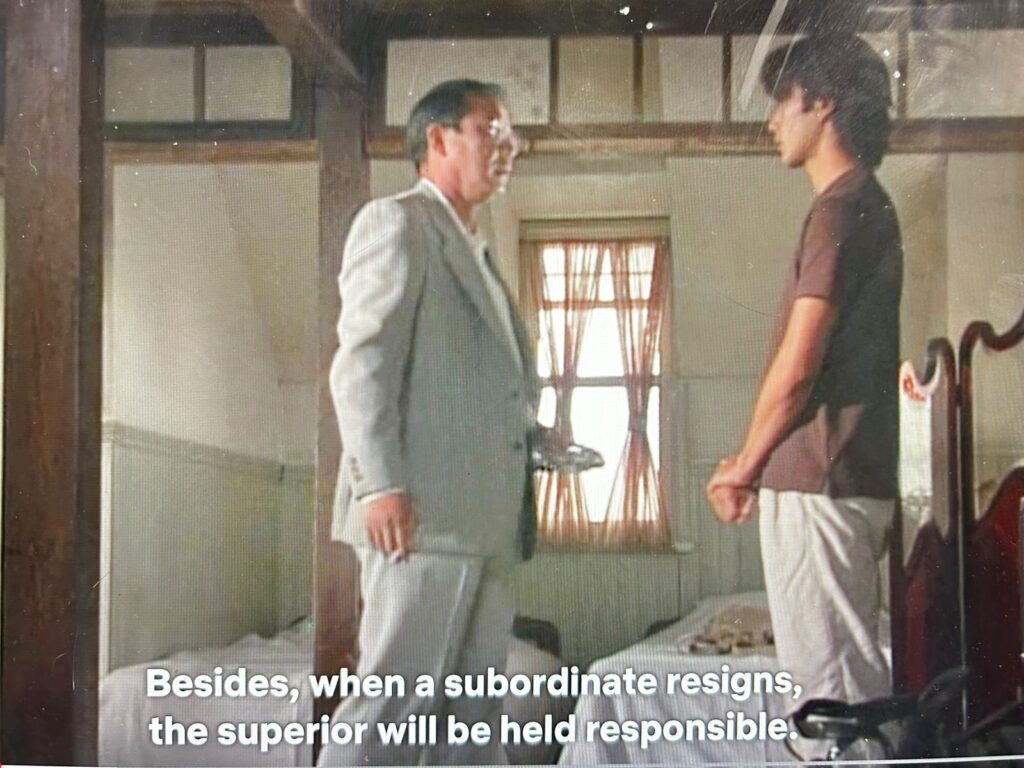
Today, I was watching a 90s Japanese TV series called Beach Boys. The story revolves around one of its main characters, Kaito Suzuki (Yutaka Takenouchi), a prominent trading firm employee who resigns after completing a highly strategic proposal project for a major company. He then chooses to work as a worker responsible for daily operations of a seaside inn that was nearly closed because the owner, an old gentleman, wanted to send his grandchild to Tokyo.
In short, when Kaito resigns, his superior is surprised. The scriptwriter doesn’t depict any drama of Kaito being prevented from resigning or being held back by the company or his boss, as we might have experienced or witnessed. He is simply allowed to resign.
A few days later, Kaito, while working leisurely at the inn, is surprised when his former boss visits with his family. It seems he not only wants to bring his family for a vacation but also to witness the condition of his former subordinate’s current workplace.
How good could his new workplace be that he would choose it over staying in a company where his career was on the rise and a promotion was waiting? Not everyone would dare or want to leave such a stable job as Kaito did.
Then there’s a scene where the former boss says to Kaito, “When a subordinate resigns, the superior must take responsibility (for the resignation).”
I was stunned, pondering this statement. Would a superior really feel guilty when a subordinate requests to resign?
From my personal experience, not all superiors feel guilty when an employee resigns.
Some don’t want to show their guilt. They don’t want to beg the employee to stay longer, but there are hints that the subordinate will regret doing this.
There are also superiors who cry when ending the working relationship because they feel helpless. They feel they have no other option to retain the subordinate, so termination is the only possible choice.
There are also types of superiors who aren’t very talkative but seem to gesture: “Oh, go ahead and resign. There are many more candidates waiting. Next!”
Fortunately, during my time as a superior, I’ve never experienced a subordinate resigning. If it were to happen to me, there would certainly be a hint of guilt.
Are there any attitudes, policies, approaches, or ways of thinking that might have been unpleasant to my subordinate? Would this be shared and spread to other subordinates or just affect the one resigning?
The moment of a subordinate’s resignation can be a moment of self-examination and reflection for a superior and leader in an organization. Are we leading well? (*/)

Leave a Reply